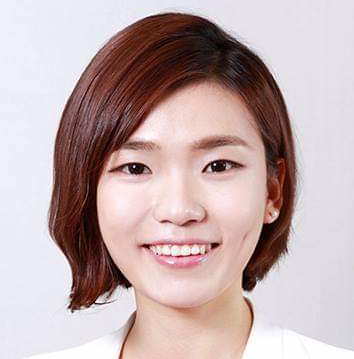Korea’s Anti-Corruption Efforts an Inspiration for Other Countries
South Korea has recently strengthened its anti-corruption policy. The BTI and other international benchmarks note that institutional changes such as the Kim Young-ran Act are now bearing fruit. There has been less success in curbing corruption and influence peddling by big business groups.
Anti-corruption is an important pillar for the current South Korean government. This is especially because President Moon Jae-in had won the 2017 presidential election under the slogan of “eradicating deep-rooted evils,” while also vowing to reform law enforcement agencies and eliminate long-running social ills that permeate everyday life.
As Moon’s tenure has recently passed the halfway point, however, critics say his administration has to set new key strategies to accurately diagnose and fight a “Korean model of corruption.”
Looking at various international indices of corruption levels can help, and such indices that give comparisons between Korea and other countries include German nonpartisan think tank Bertelsmann Stiftung’s Transformation Index (BTI) and their Sustainable Governance Indicators (SGI).
While the BTI provides a ranking of 129 developing and transition countries through qualitative evaluations with quantitative scores for the performance of them, the SGI is a platform built on a cross-national survey of 41 European Union and OECD countries’ governance to identify their reform needs.
“I think it is great that Korea is one of the few countries included in both, because it gives us the opportunity to compare Korea to both OECD and non-OECD countries. Although Korea is now a developed country and a democracy, it has gone through these transitions quite recently,” Thomas Kalinowski, an associate professor at Ewha Womans University’s Graduate School of International Studies, said during an interview with The Korea Times, Dec. 6.
“Carefully studying Korea’s transition process over the last three decades offers many insights into how successful democratization is possible and thus offers many lessons for transformation and developing countries covered by the BTI.”
According to the SGI 2019, South Korea falls into the upper-middle ranks, coming in 15th in terms of its economic policy that focuses on labor-market transformation, but still falls into the lower-middle ranks at 28 in the quality of democracy, although it evaluated that “the new government is taking a far more open approach than its predecessors.”
The BTI 2018 ranked South Korea 11th out of the 129 countries transforming toward democracy and market economy. The forthcoming BTI 2020, which includes an additional eight transformation and developing countries and will be published in March 2020, recognizes improvements in freedom of expression and prosecution of office abuse, among others. Thus, South Korea’s overall ranking will slightly improve to 10th out of 137 countries.
Other noteworthy improvements include anti-corruption policy and civil society participation in the political process. The BTI score for anti-corruption policy has improved from 6 to 7, placing Korea within the top quintile globally on this measure again. No country receives the maximum score of 10.
Every single BTI and SGI numerical rating is based on qualitative research, peer-reviewed by at least two country and regional experts, and carefully calibrated against the global country tableau.
South Korea also ranked 45th out of 180 countries in the 2018 Corruption Perceptions Index (CPI) of the non-governmental Transparency International (TI), which evaluates countries based on the corruption level of the nation’s public sector.
High Sensitivity for Corruption
“Koreans are going through a necessary phase of very high sensitivity for corruption and abuse of power. In the long run this will make Korea cleaner and improve the CPI score but it will not improve the score much in the short run as it is not yet clear if improved institutions actually have the expected result,” Kalinowski said. He said the CPI and other indices should be seen as additional tools rather than an objective ranking.
“Korea still has a political system that is built around a few powerful individuals that are primarily focused on staying in power,” he said. “The same is true for the economic arena where big business conglomerates are dominated by a small economic elite without much checks and balances from stakeholders such as labor unions, consumer groups and others. Ultimately, to fight corruption, democratic principles need to be expanded into all realms of society including the economy.”
Over the past few years, there have been some achievements such as the enforcement of the Improper Solicitation and Graft Act (colloquially, Kim Young-ran Act) in 2016. To ensure that public servants and officials perform their duties in a fair manner and to secure public confidence in public institutions, the law prohibits any improper solicitations made to them and prohibits them from receiving money, goods or other forms of solicitation.
“The Improper Solicitation and Graft Act was and is very important because it highlighted that corruption is not just a problem at the highest levels but that abuse of power can happen at every level of society,” Kalinowski said. “Most people believe they are powerless but everybody possesses some kind of power over others. Teachers, journalists and even those simply posting comments on the internet exercise power, power that they need to learn to use responsibly and for the public interest.”
The professor also said the 19th International Anti-Corruption Conference next year that will be hosted by the South Korean government together with TI is going to offer officials here opportunities to learn diverse efforts of fighting corruption in different countries.
He said the conference will also be a great opportunity for the country to advertise its political achievements in the global arena. He said it is an area where the country has remained rather “hesitant,” in “stark contrast to the aggressive promotion of Korean exports and investments abroad.”
“Korea is a beacon of democratization and human rights in Asia and its successful reduction of corruption since the end of authoritarian rule is an inspiration for others,” Kalinowski said. “Building more international cooperation particularly between Korean and global civil society is crucial to make the Korean experience accessible for others.”
This article first appeared in The Korea Times on December 8, 2019.
Damin Jung is Politics & Defense reporter at The Korea Times.
Thomas Kalinowski is an associate professor at Ewha Womans University’s Graduate School of International Studies in Seoul and a long-time BTI expert of South Korean society, economy and corruption.


